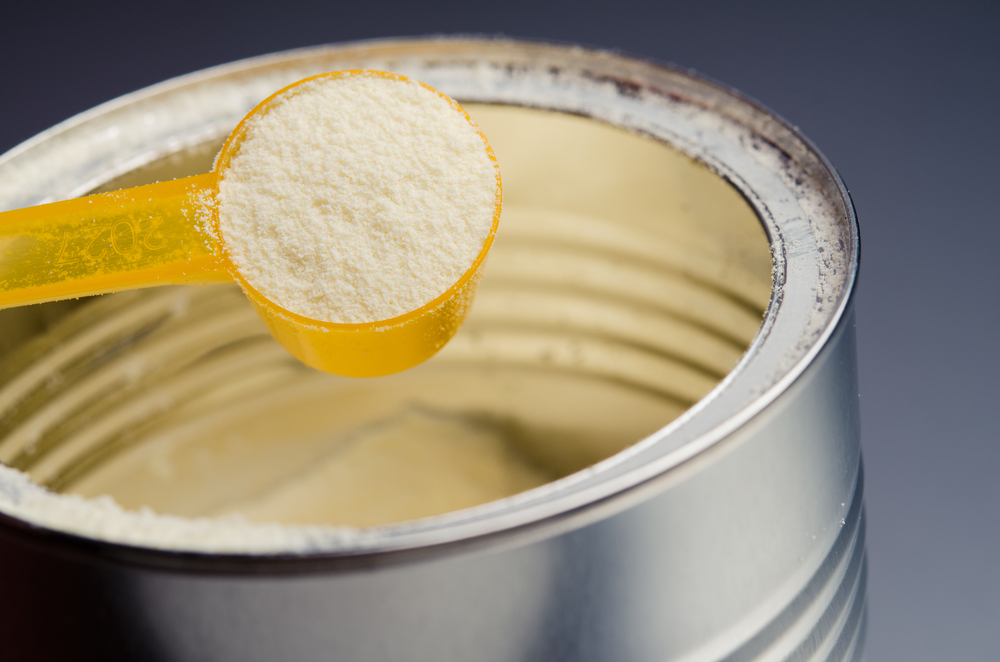
MANILA — In line with the policy to ensure the provision of safe and adequate nutrition for infants and young children, the Department of Health (DOH) said on Friday that “donated infant milk formulas” is a big “no” in evacuation centers even in times of disasters.
“As a policy, that is a statement to all our partners: We will not accept breast milk substitutes… Even during health emergencies,” said DOH Assistant Secretary Paulyn Jean B. Rosell-Ubial.
She explained that such stand of the government against donations of infant milk formula is a way to promote compliance to exclusive breastfeeding for infants up to six months of age.
Dr. Ubial said the banning of donated milk formulas is the standard protocol they apply to ensure that babies are protected from any major possible outbreak of illnesses or infections that infants are prone to while in evacuation centers.
She recalled that after super typhoon “Yolanda” devastated a big part of Eastern Visayas in November 2013, the Eastern Visayas Regional Medical Center in Tacloban City was one of the medical facilities which stayed opened and adhered to breastfeeding of infants.
She said that such was made possible with the support of many concerned sectors.
“Together with the Breastfeeding Pinay group, Arugaan, Fabella Hospital, PCMC (Philippine Children Medical Center) and PGH (Philippine General Hospital), we were able to provide 100% breast milk to all infants and newborn in that hospital,” she added.
She noted that as result, zero (0) percent infant death was recorded in that institution.
“No sepsis, no major outbreaks, so this is a proof that really, anti-bacterial agents exist in breast milk. Nothing is more important than the health and well-being of our infants,” she stressed.
Dr. Ubial said she has high hopes that other hospitals nationwide will have a milk bank advocacy that no other milk but breast milk will be available in hospitals.
She further said that the practice of exclusive breastfeeding for six months provides a multitude of benefits that affect an entire community and even the whole nation, starting with and not limited to saving lives for breast milk protects infants against diseases with its anti-bacterial agents such as antibodies.
She also mentioned the other benefits of breastfeeding of mothers among infants such as making the child grow strong and intelligent, addresses malnutrition, and bonds mother and child.
On the part of the mother, she said such “loving way” activity of a mother reduces the mother’s risk of ovarian and breast cancer, helps space pregnancies in natural method of birth spacing, saves a mother from not having to buy infant formula, feeding equipment and even sterilizing instruments.
“It also protects the environment because there is no need for packaging and disposals, so there are really a lot of benefits in a breast milk,” she added.
According to the DOH official, continuous advocacy is still needed to raise the rate of breastfeeding in the country which is recorded at 28.3 percent under the National Demographic and Health Survey conducted by the National Nutrition Council in 2013.
The month of August is celebrated as a “National Breastfeeding Awareness Month” to raise people’s awareness on the importance of exclusive breastfeeding up to six months.
The celebration emphasizes the theme: “Tama, Sapat at Ekslusibo and Pagpapasuso Kahit Nasa Trabaho” (Right, Complete and Exclusive Breastfeeding even in Workplace).
The theme wants to promote the advocacy of promoting breastfeeding even if mothers are working so as not to deprive the children of the “protective shield” of nutrition that will help them grow to be promising and strong future citizens of the country.
The theme is in line with the existence of Department Order No. 143 of the Department of Labor and Employment (DOLE) which requires establishment to set up workplace with lactation stations wherein mothers can breastfeed their babies.
According to DOLE, out of the 65,000 establishments it has assessed, at least 2,355 are still not compliant with the said Department Order for different reasons.